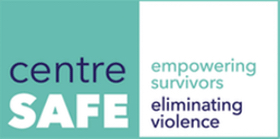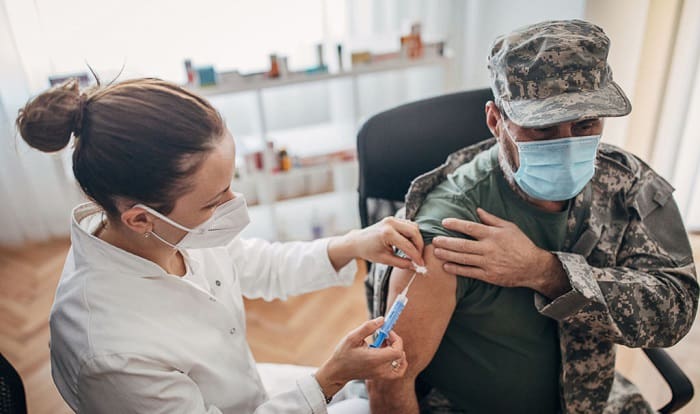You’d think the army-banned substance list would be straightforward. But it’s a surprisingly complex topic, so let’s dive straight in and get you fully educated right now.
I’ll cover banned substances in the Army, Marine Corps, Navy, and Air Force. I’ll explain the categories and some specific examples. We will also talk a little about some of the surprising things you’ll find in those lists, things that could get you caught out easily.
Plus, I’ll also cover drug and alcohol testing. All that in the next five minutes – so let’s get started right now.
Don’t Confuse The Army Banned Substance List With Drugs And Alcohol
Many people mistakenly think the army banned substance list is about drugs and alcohol, but that’s not actually the case.
In fact, it’s a huge list of banned substances, including a substantial dietary supplement and ingredient list.
Broadly, the Department of Defense list covers the following:
- Stimulants
- Prohormones
- SARMs
- Synthetic cannabinoids
- Deemed hazardous compounds
- Prohibited dietary supplements
- Any Hemp derived products
That may sound pretty straightforward, but it’s a huge and ever-changing list. It’s such a huge list that there’s even a searchable database just for the dietary supplement ingredients that are banned.
So What Is On The List Of Banned Substances In The Army?
Diving into some specifics now, I mentioned synthetic cannabinoids. This is every cannabinoid that is synthetically produced, including CBD.
That might surprise you, as CBD is actually licensed for therapeutic use. But the army states that because its THC level is not standardized across products, they simply ban all of them.
In terms of dietary supplements, this covers a huge range of things that the army deems could pose health risks or could impair the performance of the individual, as laid out in DoD instruction 6 30.06 “Use of dietary supplements in the DoD”.
It’s huge so I can’t give you a comprehensive list, but here are a few to give you an idea:
- Weight loss supplements (melatonin II is one example)
- Ephedrine and Ephedra (both found in weight loss and energy supplements)
- Peptides (amino acids)
- Many types of herbal supplement
- Any supplement not approved by the FDA
- Hormone and metabolic modulators (including things like aromatase inhibitors)
- Hormones
- Unlicensed diuretics
- Anything on the World Athletics doping banned list
- All types of nootropics (“smart drugs”)
If in any doubt, the individual should visit the database I mentioned earlier, the OPSS (Operation Supplement Safety) website to check for the ingredients that they want to consume.
Obviously, a lot of that is pretty common and straightforward. But lots of people get caught out by buying things which contain banned ingredients, even though the whole thing is not banned, so it’s essential you are very aware of what you are consuming.
Marine Corps Banned Substance List – Is It Different?
Sometimes people ask if the Marine Corps banned substance list is any different. The answer is no, it’s all categorized under the DoD (Department of Defense) main list.
Also note that the USMC is part of the US Navy and not the US Army, and the list of banned supplements USMC will always be identical to the army list.
What About The Navy And Air Force?
Again, this is all United States military. Therefore, it’s covered by the Department of Defense rules and regulations.
Therefore, any substance banned in one service arm is banned in them all. Another important point to note, which can be a real problem for some, is that these guidelines on banned substances also apply to reservists and the National Guard.
So even when you’re in the military reserve, and not even in active service, in civilian life, you still have to be aware of these rules and follow them.
Some Surprising Things On The Dod Banned Substances List
Let’s just highlight some of the more surprising things that you’ll find on the banned substances list. The big one for me was CBD. It’s classed as a synthetic cannabinoid, which it is.
However, it has been linked to significant therapeutic benefits, which is why I was very surprised that CBD was on the list.
But here’s the thing, it’s on the list because the military states that you can’t guarantee the amount of THC in it, therefore as that can’t be controlled fully, then they don’t allow it to be used at all by service personnel.
Another slightly surprising one for me was the stimulant DMAA. It’s completely legal to have in sporting pre-workout supplements, and many contain it.
However, because DMAA has been linked to the potential to cause cardiovascular problems with repeated use, a blanket ban is in place on its use if you are in the military. In terms of hormones, note that all of these are not permitted as well, so you couldn’t use hormone replacement therapy if you are in the military either, such as testosterone replacement therapy.
These are the sorts of things that are banned as hormones.
- Testosterone
- HCG
- Growth hormone
- IGF-1
When you put all that together, then you can see it’s pretty comprehensive in scope. The truth is that most things hormonal, stimulant, or nootropic in nature are banned.
What About Drug Testing?
As you’ve already guessed, anything that gets you high is going to be banned, including, obviously, all types of narcotics. Despite the legality of marijuana in many states, it’s still completely banned at the federal level and in the US military, so it’s a no-no, including low levels of THC found in hemp derived products.
The standard 5 panel drug test always looks the following:
- Opiates
- Cocaine
- PCP
- Marijuana
- Amphetamine/methamphetamine
Now look, the highest panel drug testing used by the military standard is the 26 panel one. 26 panels is immense and insane. It covers almost everything you could think of, in terms of narcotic substances and other illegal substances.
You’ll usually only face the 5 panel urine test during your army career, unless there is suspicion of wrongdoing that prompts them to request a higher level of scrutiny.
But remember, you won’t know which five panels are there. These panels can be swapped out if they suspect you have a specific substance abuse situation, and want to target that.
Also note that although alcohol consumption is permitted, the military still enforces policies to prevent misuse of it, which include:
- Underage drinking
- On-duty restrictions
- Off duty restrictions
- Impair performance
- Alcohol related incidents
Drugs Not Tested For That Are Also Banned
I talked earlier about herbal supplements. This includes things that get you high, that aren’t looked for on standard drug test, but could be on more advanced screens.
This list includes substances like:
- Salvia
- Kratom
- Magic mushrooms
A lot of guys seem to think they will get a free pass if they use natural herbal highs that aren’t listed on standard drug testing (up to 26 panels).
There are advanced screens that can be used, and they can look for the active ingredients in these types of supplements. But they have to be switched in, or looked for specifically. They are not on any standard military drug tests, including the immense 26 panel one.
Also, note that kratom is an agonist of the opioid receptors, but is not an opiate (naturally occurring rather than an opioid medication). So it won’t trigger a positive result for opiates on a standard drug test, but can be looked for specifically through its metabolites (waste products created on processing in the body).
How To Pass A Military Drug Test
There’s not a lot you can do if you are found to have consumed something that is on the banned substances list, as laid out in the list of banned substances in the army, defined on the maintained database (also available as an app to military personnel).
But here’s the thing, a lot of these things can’t actually be tested for easily. They could be through an advanced gas chromatography-mass spectrometry analysis, but they wouldn’t be picked up on standard panel drug tests.
In terms of narcotics and medications, there are several ways you can avoid detection:
- If it’s an unsupervised drug test, then submit a fake sample. Quick Luck fake urine is the best on the market and doesn’t rely on a heatpad to keep it within the correct temperature range needed. Remember to find out if it’s an unsupervised test in advance though. For more information on synthetic urine, check out our complete guide.
- For a supervised test, you can mask the toxins in your body for a few hours using Rescue Cleanse detox drink. Note that this will work for more than drug metabolites, but also note again, that there’s no real test that can be done for a lot of these substances.
- You could get genuinely clean to pass any type of scrutiny by accelerated natural detox with detox pills called Toxin Rid. They will speed up the processing of metabolites and other toxins through the kidneys and liver by more than 50%. For more information check out our Toxin Rid review.




